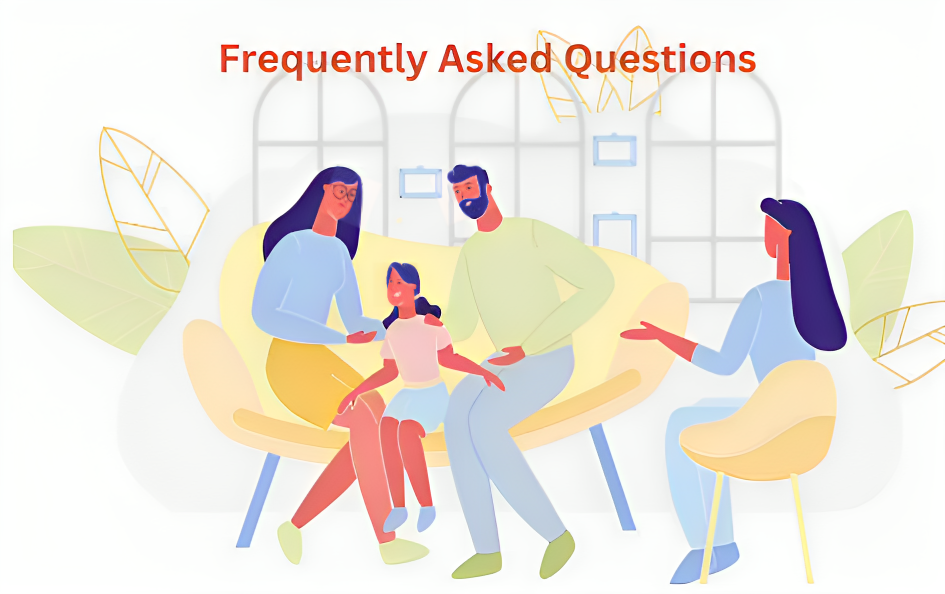Addressing frequently asked questions by parents
At Impact, therapists and administration get a lot of frequently asked questions by parents. These questions range from Impact’s assessment process, stigmas surrounding diagnosis and therapy treatments at Impact. Concerned parents are likely to want to obtain all the relevant information they can before admitting their child to Impact, and we, at Impact, understand the need to acquire all the relevant information before making an informed decision.
To help facilitate parents, this blog post will compile frequently asked questions that our administration and therapists get from parents, to allow for new parents to easily access answers to questions and get the satisfactory information they need to understand the therapy process at Impact, and how our professionals can help your child.
1- What is the need for behavioural therapy when my child is being given speech therapy?
Behavioural therapy works to improve a child’s everyday behaviours, this therapy ranges from making sure the child is able to stay ‘on seat’ for the given period of time, to improving children’s social behaviours- ensuring that they are able to demonstrate the appropriate etiquettes of social interactions.
Speech and behavioural therapy goes hand in hand; there cannot be improvement in one without there being improvement in the other and vice versa. Parents often come to Impact concerned about their child’s delayed speech, and believe behavioural therapy (Occupational Therapy) is not needed. This is a common misconception. Occupational therapy has the ability to improve a child’s social, cognitive and physical needs- it can help them regain independence in all aspects of life.
When children are given Occupational Therapy at Impact, they are able to feel a sense of increase in their self esteem, improvement in their school performance and aids them in their daily activities. With an increase in confidence, children are more likely to display progress in other aspects of their therapy- such as Speech Therapy.
2- Why does my child cry every time they go to therapy?
The ability to express our emotions through tears when we feel overwhelmed or upset is common for every individual- no matter their age or their gender. It is a normal, expressive method of getting out an overwhelming array of emotions that sometimes cannot be described just by words.
Many young children cry when they arrive at therapy, be it at Impact or anywhere else in the world- and it is important to understand the difference between whether this onset of crying has been brought on by other, external factors (such as your child feeling over tired, or over stimulated by an external event) or whether your child just doesn’t want to go to therapy.
Crying for young children can turn into a self defence mechanism, as they believe it will be able to get them out of participating in activities that they simply don’t feel like doing, and this can slowly turn into a tactic that they use to get out of going to therapy when they don’t feel like it. It is important to understand that children with ASD and similar disabilities are unable to comprehend how their therapy will help them in the long run- especially if they are younger children (which is the majority of children here at Impact).
Rather than giving into your child’s emotional outbursts, it would be beneficial for them to sit down and try to explain to them the benefits of their therapy, or go through the daily activities done by therapists at Impact at home so they do not feel as if they are being thrown into an unfamiliar environment and are able to feel more comfortable and at ease.
Your child crying when they go to therapy is not a sign that the therapy is not working, it is just your child’s way of communicating that they do not want to go to therapy in a way they know will be most effective to get them out of it.
3- What is the assessment process at Impact?
The assessment process at Impact encompasses a holistic review that involves everyone from the team, ranging from the administration, to the therapists, and finally the director Maliha Latif. At Impact, the importance of early intervention is emphasised, and therefore parents are encouraged to bring their children in before they hit their pre teen or teenage years for the Autism Care Program that takes place in the morning.
The assessment process is first consulted by members of Impact’s administration, in which parents are asked to fill out a basic form that allows for therapists to gauge the child’s behaviours and get a better sense of their symptoms from the parents. This form is standardised for everyone, and there are no differences in the initial forms for different children.
Impact’s certified therapists use internationally renowned psychometric tests to then conduct a one on one assessment session with the child to help understand their strengths and weaknesses. If needed, a diagnosis is achieved, and therapists such as Speech and Occupational Behaviour therapists are able to use the unique treatment methods that will benefit your child the most. The entire assessment process is confidential between therapist and parents, and no third party is allowed access to these forms.
A final consultation meeting with director Maliha Latif can also be scheduled in which any other queries can be resolved directly through her, and any remaining questions can be answered by her to help put parents’ minds to ease and ensure they are fully aware and understand the basis of therapy and treatment at Impact.

